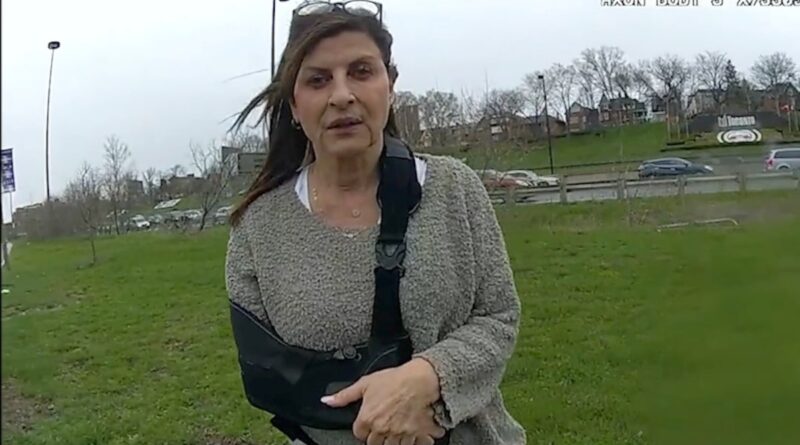Toronto police inspector appeals her demotion from disciplinary hearing

Toronto Police Service Inspector Joyce Schertzer in a screen grab from police body-camera footage on May 1, 2022, released as part of an internal disciplinary hearing.Supplied
A senior Toronto police officer is appealing a tribunal decision and sentence in which she was found guilty of professional misconduct and demoted for intervening in a car crash involving her nephew in 2022.
Inspector Joyce Schertzer was found guilty of misconduct and neglect of duty in August for her involvement in her nephew’s single-car crash. She was sentenced to a temporary nine-month demotion last month, to the rank of staff sergeant.
The inspector is a former homicide detective who has been involved in many high-profile investigations, including the criminal probe of ex-mayor Rob Ford.
The appeal application, filed on Tuesday with the Ontario Police Arbitration and Adjudication Commission, says Lisa Taylor, a retired Ontario Provincial Police superintendent and the tribunal’s hearing officer, “ignored relevant evidence,” “acted without evidence,” and arrived at “unreasonable findings” that were “replete with errors.”
The appeal seeks to have the misconduct finding revoked, or alternatively that the demotion be reduced to forfeiting five days off “or such lesser penalty than that of a demotion.”
Joanne Mulcahy, Insp. Schertzer’s lawyer, declined to comment on the appeal. Nadine Ramadan, a spokesperson for the Toronto Police Service, said the service would not comment since the appeal was continuing.
On the morning of May 1, 2022, Calvin Dejak drove his pickup truck into a hydro pole outside The Boulevard Club, a social club on the city’s lakeshore. The inspector was then the unit commander for 11 Division, arranged for an officer to attend the scene, then headed there herself, despite the crash having occurred in the neighbouring 14 Division’s jurisdiction. During the hearing, prosecutor Scott Hutchison said this decision circumvented the “priority system” to the benefit of Insp. Schertzer’s family.
The inspector said last year that she believed The Boulevard Club was within her division’s catchment area.
When Constable Braden Doherty arrived on the scene, the inspector was already there. The hearing focused in part on a two-minute gap in the constable’s body-camera footage, prior to which Constable Doherty informs Insp. Schertzer that he was disabling his camera.
Constable Doherty told the tribunal he had determined that there was “no criminality” in the crash, and that he did not believe alcohol was a factor.
Once the body camera was turned back on, the constable released Mr. Dejak from the scene.
When Toronto police traffic investigators learned that the driver had left, they demanded his return. In body-camera footage played for the hearing, a traffic-services officer tells Mr. Dejak that he’s “very fortunate that you have family members who have helped this go away.”
In her decision last year, Ms. Taylor wrote that Insp. Schertzer had inserted herself into the investigation and exhibited “errors in judgment,” since she was a high-ranking officer responding to a call involving a family member.
The inspector told the tribunal last year that she attended the scene not in her professional capacity, but as an aunt.
The defence submitted that the incident was an exception in an otherwise stellar career, and provided 73 letters of support, including from police chiefs. At the end of the penalty hearing in October, the inspector apologized for her conduct.

